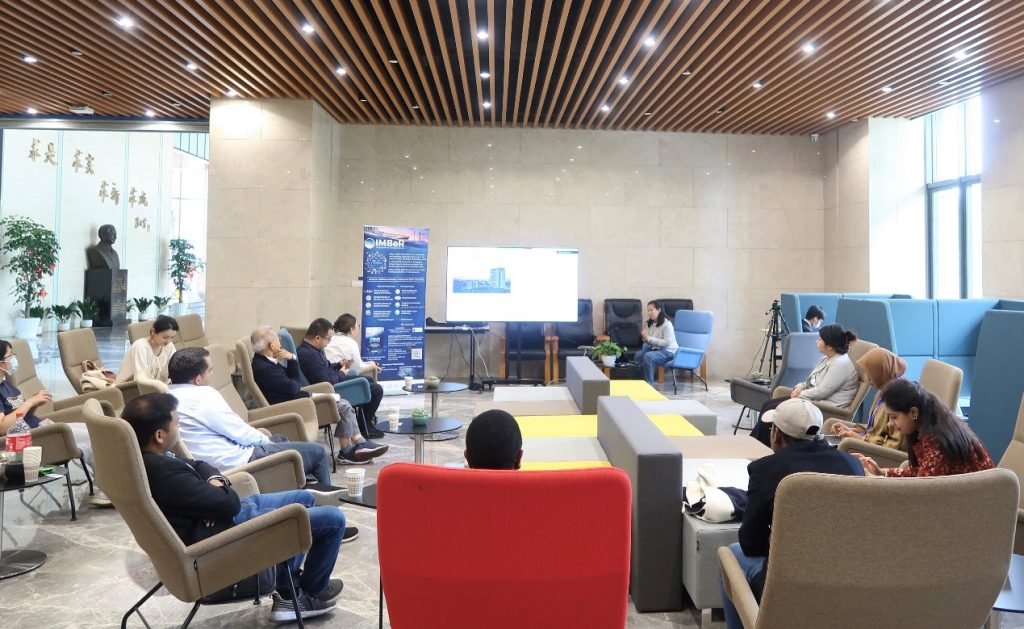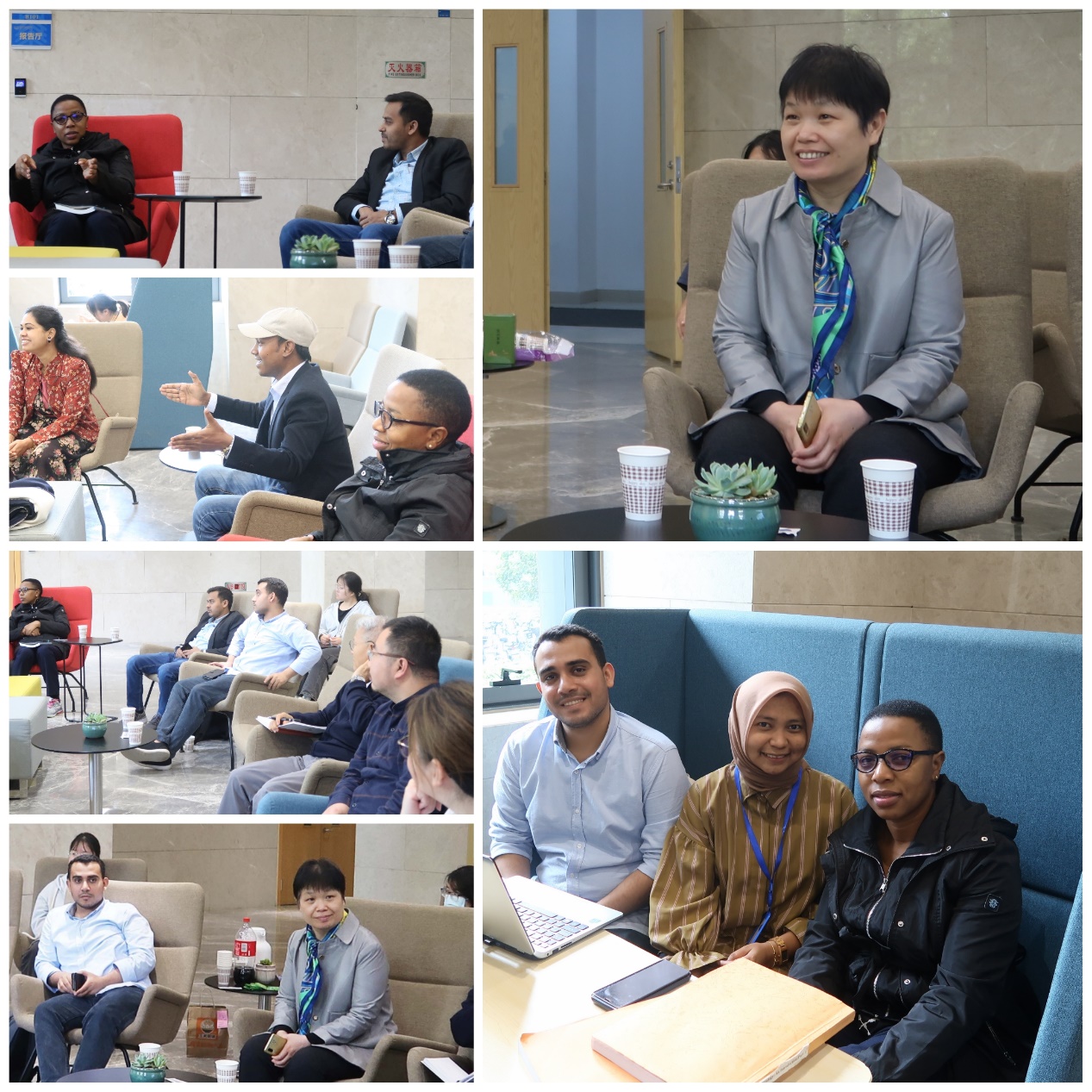On 10 May 2023, the IMBeR International Project Office (IPO-China) held its second IMBeR Coffee Reception at the SKLEC building, ECNU, featuring two captivating presentations. Jing WEN, a postgraduate student from the School of Urban and Regional Science and an intern at IMBeR IPO-China, presented “The River Network of Shanghai”, offering a historical account of Shanghai’s waterways. Wei ZHENG from SKLEC shared her insights on “Customs Declaration for Overseas Samples”, providing a detailed overview of the transportation process for samples from abroad. This capacity-building event, targeting international students from SKLEC and IMBeR IPO-China interns, garnered the attention and participation of many teachers and students from relevant fields.
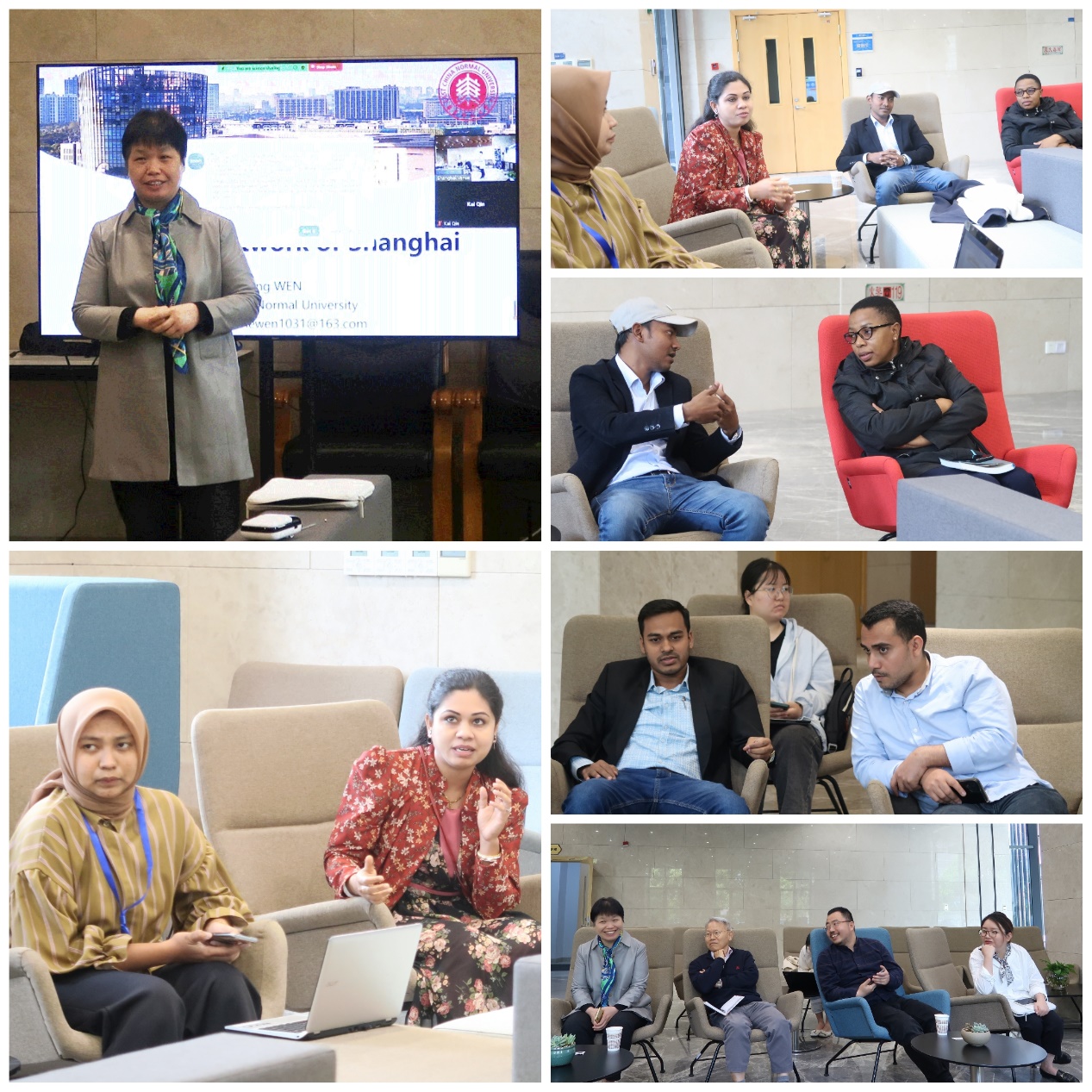
The event commenced with a welcoming speech by Professor Xiuzhen LI, Deputy Director of the Institute of Estuarine and Coastal Research, who warmly welcomed international students from different countries and regions to pursue further studies at SKLEC. She encouraged them to make use of the international platform of SKLEC to enhance communication, and actively participate in the activities organized by international project offices, to better adapt to their school life in Shanghai.
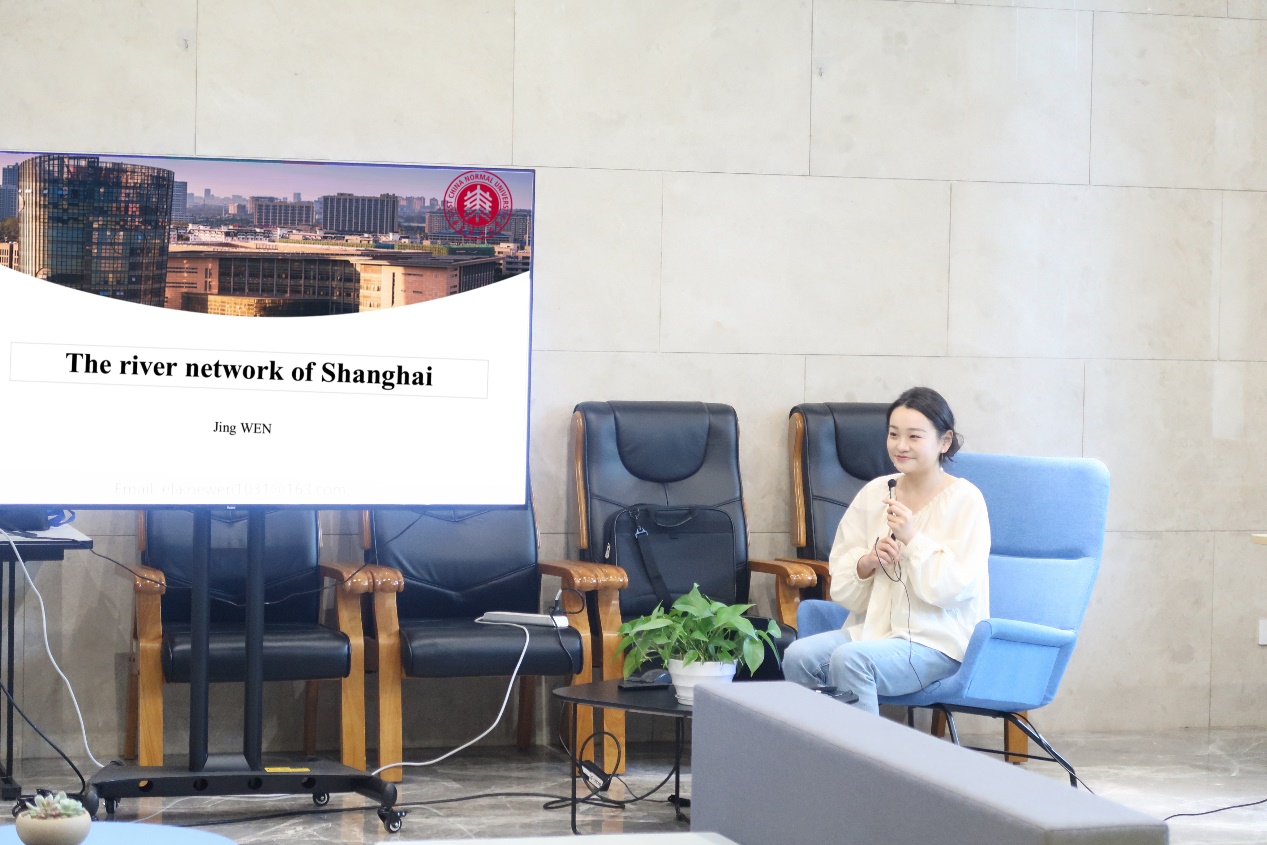
Over the span of 700 years, the river network of Shanghai has undergone significant transformations, witnessing the rise and development of the city. During her presentation, Jing WEN guided the attendees through the evolution of Shanghai’s waterways, shedding light on their historical origins. Suzhou Creek, originally known as “Song Jiang” (“Pine River”), was renamed “Wusong River” in 1278A.D. when the Huating Fu (Prefecture) changed its name to Songjiang Fu. As a tributary of Huangpu River and a vital outlet for Taihu Lake, Wusong River has not only served as the lifeline for transportation throughout history, but has also played a significant role in Shanghai’s development. She vividly depicted the development of Shanghai’s river network since the Yuan, Ming and Qing dynasties, as well as its pivotal role in urban development. She also narrated interesting historical anecdotes, such as the inspection of “Wusong River” by Yuanji XIA, a Ming Dynasty government minister who presided over the merging of the Wusong River and Huangpu River, and opposed He ZHENG’s overseas voyages. The audiences immersed themselves in her informative narration, gaining a deeper understanding of historical details and embracing the charm of history.
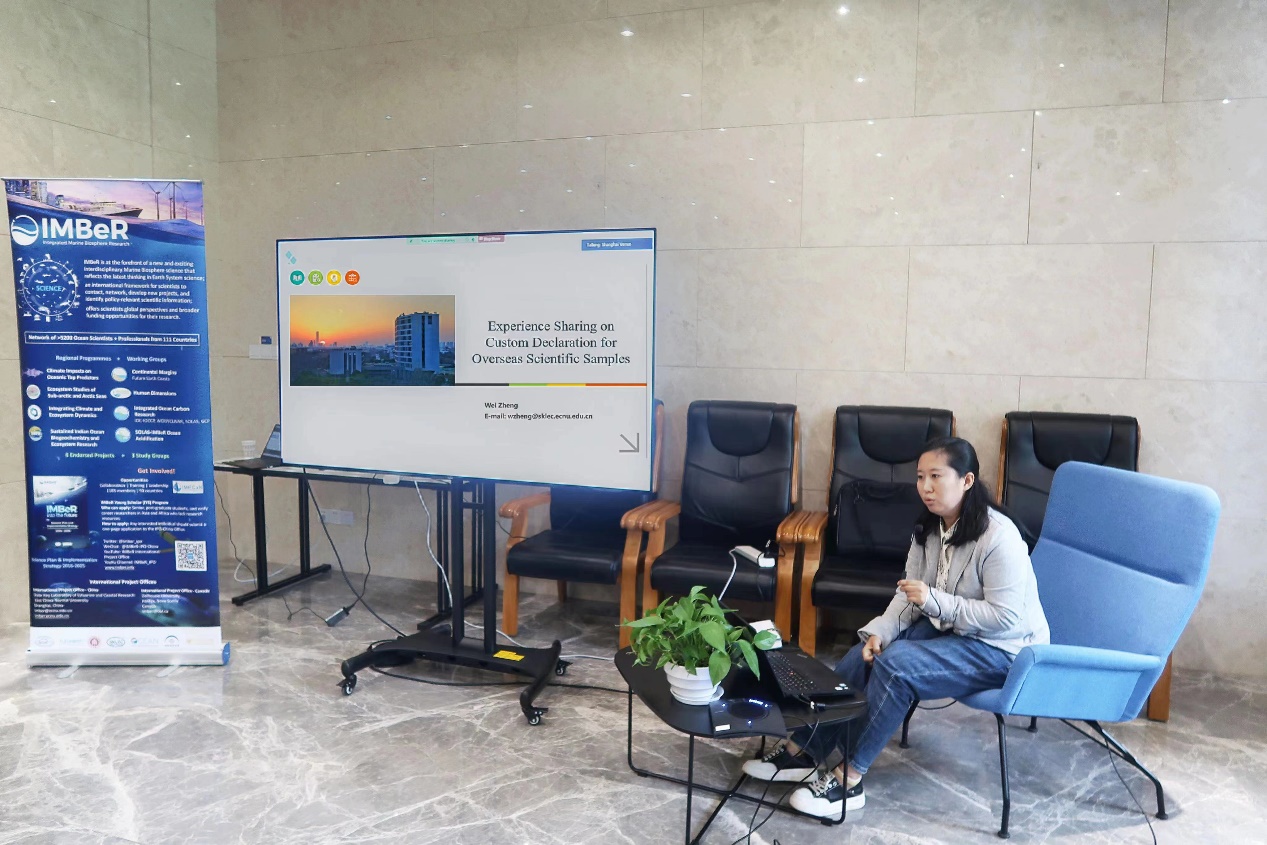
Have you ever wondered about the complexities of transporting samples from overseas to China? Are you confused about the procedures before and after sample transportation that require special declarations? At the event, Wei ZHENG drew upon her own experiences to provide a lucid and accessible introduction to the transportation and declaration processes for various types of samples. Ensuring compliance is crucial when handling samples that require special declarations. She elaborated on the types of samples that require special declarations and outlined the necessary steps to be taken before and after the arrival of the samples, including some specific procedures and regulations that must be followed. For example, marine sediment samples require supporting documents from the institution and a sample list, as well as a special permit issued by the General Administration of Customs of China. Her detailed presentation offered a concrete and concise understanding of the sample transportation and customs declaration process to the audience, who found her experience sharing to be a valuable reference for their future research.
Following the presentations, faculty and students engaged in further discussion during the coffee reception, exchanging ideas about the presentations and sharing updates on their own research progress.
Aligned with SKLEC’s international initiatives, this is the second lecture event of the ongoing capacity development activities hosted by IMBeR IPO-China. These activities aim to provide early career researchers with invaluable learning and communication opportunities to help them adapt to diverse learning environments, broaden their international perspectives, and enhance their overall abilities.
Stay tuned for the upcoming event!
